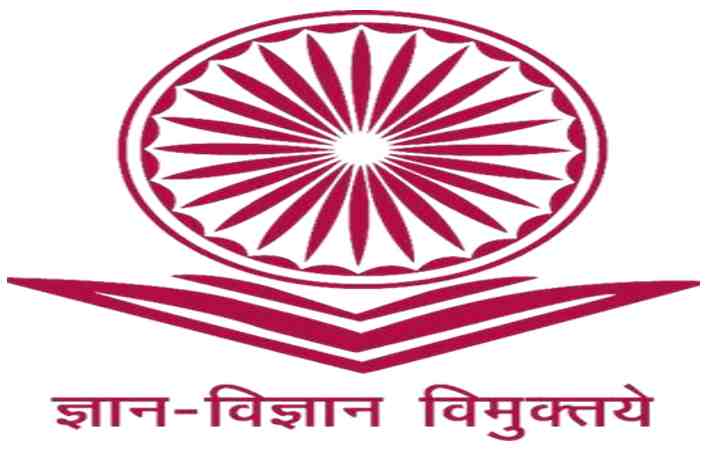
Introduction
From ancient Bharat to modern India, higher education has always occupied a place of prominence in Indian history. In ancient times, Nalanda, Taxasila, and Vikramsila universities were renowned seats of higher learning, attracting students not only from all over the country but from far-off countries like Korea, China, Burma (now Myanmar), Ceylon (now Sri Lanka), Tibet, and Nepal. Today, India manages one of the largest higher education systems in the world.
The present system of higher education dates back to Mountstuart Elphinstone`s minutes of 1823, which stressed the need for establishing schools for teaching English and the European sciences.
The UGC was first formed in 1945 to oversee the work of the three Central Universities of Aligarh, Banaras, and Delhi. Its responsibility was extended in 1947 to cover all Indian universities.
Then the University Education Commission was set up in 1948 under the chairmanship of Dr. S. Radhakrishnan, who recommended the formation of the University Grants Commission. It can be reconstituted on the general model of the University Grants Commission of the United Kingdom, with a full-time chairman and other members to be appointed from among eminent educationists.
What Is UGC?
The University Grants Commission, or UGC, is a statutory body. It is set up by the Department of Higher Education, Ministry of Education, Government of India, in accordance with the UGC Act 1956. It is charged with coordination, determination, and the maintenance of standards in higher education in India.
It provides recognition to universities in India and disburses funds to such recognized universities and colleges.
Regional Center’s
To ensure effective region-wise coverage throughout the country, the UGC has decentralized its operations by setting up six regional centers.
They are as follows:
- Pune,
- Hyderabad,
- Kolkata,
- Bhopal,
- Guwahati,
- The head office of the UGC is located at Bahadur Shah Zafar Marg in New Delhi, with two additional bureaus operating from 35 Feroze Shah Road and the South Campus of the University of Delhi as well.
UGC Mandate

- The UGC has the unique distinction of being the only grant-giving agency in the country that has been vested with two responsibilities:
- Providing funds and coordinating,
- Determination and maintenance of standards in institutions of higher.
The UGC`s mandate includes:
- Promoting and coordinating university
- Determining and maintaining standards of teaching, examination and research in
- Framing regulations on minimum standards of
- Monitoring developments in the field of collegiate and university education; disbursing grants to the universities and
- Serving as a vital link between the Union and state governments and institutions of higher
- Advising the Central and State governments on the measures necessary for the improvement of university
- In December 2015 the Indian government set a National Institutional Ranking Framework under UGC which will rank all educational institutes by April 2016.
Chairman Of UGC
The first chairman of UGC was Dr. Shanti Swarup Bhatnagar (1953–1955).
In February 2022, M. Jagadesh Kumar was appointed chairman of the UGC. He is a professor in the Department of Electrical Engineering at IIT Delhi and a former VC of JNU.
UGC Formation
- The University Grants Commission (UGC) was formally inaugurated by the late Shri Maulana Abul Kalam Azad, the then Minister of Education, Natural Resources, and Scientific Research, on December 28, 1953.
Logo Of UGC

The University Grants Commission (UGC) logo was first introduced in 1956, but it was Prime Minister Shri Atal Bihari Vajpayee’s speech on the occasion of the University Grants Commission (UGC) Golden Jubilee Year on December 28, 2002, that sparked the idea of revisiting the old UGC logo.
In his speech, Shri Vajpayee spoke of the need to take a fresh look at the UGC Act, of 1956, in light of the new challenges for the education sector emerging in the twenty-first century. He also suggested that the Commission could consider changing its name to the “University Education Development Commission.”
The motto line, “Gyan-Vigyan Vimukte” (Knowledge Liberates), was suggested by Ms. Aruna Goel and accepted unanimously since it was found to capture the essence of knowledge and learning, besides reflecting the UGC’s role of promoting excellence in higher education and the holistic development of individuals.
Ms. Priya Jayanand, a final-year student at the College of Fine Arts in Thiruvananthapuram, designed and executed the new UGC logo, which was unveiled on December 28, 2003.
UGC Act, 1956

- The University Grants Commission Act and its Rules and Regulations Under the Act of 1956, an act was passed to make provisions for the coordination and determination of standards in universities and, for that purpose, to establish a University Grants Commission.
- The University Grants Commission Act, of 1956, is an Act of Parliament.
- There are four chapters and 28 sections in the Act.
- In section 2(f), “university” means a university established or incorporated by or under a central act, a provincial act, or a state act, and includes any such institution that may, in consultation with the university concerned, be recognized by the Commission in accordance with the regulations made on its behalf under this act.
- section 4 deals with the Establishment of the commission
- section 5 deals with the composition of the commission
The Commission shall consist of—
- a Chairman,
- a Vice-Chairman, and
- ten other members, to be appointed by the Central
Section 12 deals with the functions of the Commission: “It shall be the general duty of the Commission to take, in consultation with the universities or other bodies concerned, all such steps as it may think fit for the promotion and coordination of university education and for the determination and maintenance of standards of teaching, examination, and research in universities, and for the purpose of performing its functions under this Act.”
Section 12A- Regulation of fees and prohibition of donations in certain
Section 12B – Prohibition regarding the giving of any grant to a university not declared fit to receive such a grant.
Section 13—Inspection
Section 18 deals with the annual The Commission shall prepare once every year, in such form and when may be prescribed, an annual report giving a true and full account of its activities during the previous year, and copies thereof shall be forwarded to the Central Government, and the Government shall cause the same to be laid before both Houses of Parliament.
Section 20: Directions by the Central Government:
In the discharge of its functions under this Act, the Commission shall be guided by such directions on questions of policy relating to national purposes as may be given to it by the Central Government.
If any dispute arises between the Central Government and the Commission as to whether a question is or is not a question of policy relating to national purposes, the decision of the Central Government shall be final.
- Sections 25 and 26: the power to make rules and regulations.
Different Types Of Universities Are Regulated By The UGC

1. Central universities, or Union universities:
- Central universities, or Union universities, are established by an Act of Parliament and are under the purview of the Department of Higher Education in the Union Human Resource Development Ministry. As of November 16, 2022, the list of central universities published by the UGC includes 54 central universities.
2. State Universities:
- State universities are run by the state governments of each of the states and territories of India and are usually established by a local parliament act. As of November 16, 2022, the UGC lists 459 active state universities. The oldest establishment date listed by the UGC is 1857, shared by the University of Mumbai, the University of Madras, and the University of Calcutta.
3. Private Universities:
Private universities are approved by the UGC. They can grant degrees, but they are not allowed to have off-campus affiliated colleges. As of November 25, 2022, the UGC consolidated list of universities lists 430 private universities.
The earliest date of notification is that of Sikkim Manipal University, October 11, 1995.
Private universities were established in 26 of the 28 states of India and in none of the 8 union territories.
4. Deemed universities:
“Deemed university,” or “deemed-to-be-university,” is a status of autonomy granted by the Department of Higher Education on the advice of the UGC under Section 3 of the UGC Act, 1956. The UGC lists 127 institutes that have been granted “deemed” university status as of November 16, 2022.
According to this list, the first institute to be granted deemed university status was the Indian Institute of Science, which was granted this status on May 12, 1958. Note that in many cases, the same listing by the UGC covers several institutes. The state with the most deemed universities in Tamil Nadu, with 28 universities having deemed status.
5. Professional councils
- Professional councils are responsible for the recognition of courses, promotion of professional institutions, and providing grants to undergraduate programmes and various awards.
6. The statutory professional councils are:
- All India Council for Technical Education (AICTE)
- Medical Council of India (MCI)
- Indian Council for Agricultural Research (ICAR)
- National Council for Teacher Education (NCTE)
- Dental Council of India (DCI)
- Pharmacy Council of India (PCI)
- Indian Nursing Council (INC)
- Bar Council of India (BCI)
- The Central Council of Homeopathy (CCH)
- Central Council for Indian Medicine (CCIM)
- Council of Architecture
- Rehabilitation Council
- National Council for Rural Institutes (NCRI)
7. State Councils of Higher Education (SCHE) It includes the following councils:
- Andhra Pradesh State Council of Higher.
- Kerala State Higher Education.
- Tamil Nadu State Council for Higher Education (TANSCHE).
- West Bengal State Council of Higher.
- State Higher Education Council.
- State Advisory Board for Higher Education, Itanagar, Arunachal Pradesh.
- State Advisory Board for Higher Education, Tripura, Agartala.
- State Advisory Board for Higher Education, Shimla, Himachal Pradesh.
STRIDE - Scheme For Trans-disciplinary Research For India’s Developing Economy
- STRIDE is an initiative that supports research projects that are nationally important, socially relevant, locally need-based, and significant on a global scale.
Components of STRIDE:
1. Component 1:
Provisions for building research capacity in various orders by nurturing, mentoring, and supporting young talents to innovate real-life solutions for regional, local, national, and global problems
The grant available is up to Rs. 1 crore.
2. Component 2:
Provisions for enhancing problem-solving skills through social innovation Improving people’s well-being through action research also contributes to India’s developing economy.
Grants ranging from Rs. 50 lakhs to Rs. 1 crore are available for projects under this component.
3. Component 3:
- Funding high-impact research projects in the identified thrust areas in the humanities and human sciences through a national network of eminent scientists from leading institutions.
Other features of STRIDE are:
- It is a guide to Student Induction Programme, prepared by the University Grants Commission (UGC).
- This program is meant for new students to feel comfortable in the new environment, and the induction programs are held before classes
The objectives of the Scheme are:
- Helping new students adjust and making them feel comfortable in the new
- Inculcating the ethos and culture of the particular
- Helping them bond with fellow students and faculty
- Providing them with exposure to a sense of larger purpose and self-exploration.
Deeksharambh – A Guide to Student Induction Programme
- In July 2019, the Ministry of Human Resource & Development brought a Deeksharambh which is a guide for students who are recently admitted into institutions.
The objectives of Deeksharambh are:
- Provide comfort to new students in the new environment
- To inculcate in students the ethos and culture of the UGC institution,
- To assist them with building bonds with other UGC students and faculty members,
- To expose them to a sense of larger purpose and self-exploration.
- To empower aspirant learners to face the competitive world with
- To open new horizons of life leading to character building based on Universal Human Values such as Truth, Righteous Conduct, Love, nonviolence, and Peace and assist in developing self-awareness, compassion and
Annual Reports
- The UGC publishes its annual report i.e expenses that occurred in the year. It publishes every year.
Latest Amendments
The University Grants Commission (UGC) has determined that the chartered accountancy qualification and the postgraduate degree are academically equivalent. As a result, the Chartered Accountant members can now pursue Ph.D. in all the Indian universities, as opposed to the 106 universities, two IITs, and seven IIMs that presently recognize the Chartered Accountancy qualification for the specific purpose of registration in a Ph.D. program.
The grant of equivalence of the Chartered Accountancy course with the postgraduate degree will entitle Chartered Accountants to take the University Grants Commission’s National Eligibility Test (NET). It will make chartered accountants eligible for university junior research fellowships or assistant professorships.
CA course consideration as equivalent to a postgraduate degree will also aid CA members who are aspiring to go overseas for higher studies and/or to seek professional opportunities abroad.
Top 13 Interesting Facts About UGC
The UGC came into existence on December 28, 1953, but became a statutory organization of the Government of India by an Act of Parliament in 1956.
The function of UGC is to determine and maintain standards of teaching, examination, and research in universities. framing regulations on minimum standards of education. Monitoring developments in the field of collegiate and university education; disbursing grants to the universities and colleges
The University Grants Commission is the full name of the UGC.
The founder of UGC is “S. Radhakrishnan,” i.e., “to report on Indian university education and suggest improvements and extensions that might be desirable to suit the present and future needs and aspirations of the country.”
The headquarters of the UGC is in New Delhi. The official languages of the UGC are Hindi and English.
The UGC has six regional centers, i.e., Pune, Bhopal, Kolkata, Hyderabad, Guwahati, and Bangalore.
The University Grants Commission provides recognition to universities in India and disburses funds to such recognized universities and colleges.
The parent organization of UGC is the Department of Higher Education, Ministry of Education, Government of India.
The universities under the UGC are central universities, state universities, deemed universities (or deemed to be universities), and private universities.
Dr. Shanti Swaroop Bhatnagar was the first executive, or chairman, of the UGC (1953–1955).
The motto line of UGC is “Gyan-Vigyan Vimukte” (Knowledge Liberates), which was suggested by Ms. Aruna Goel and accepted unanimously.
The UGC Act of 1956 is divided into four chapters and 28 sections.
As of November 16, 2022, there are 459 state universities, 54 central universities, 127 deemed universities or deemed to be universities, and 430 private universities under the control of the UGC.






